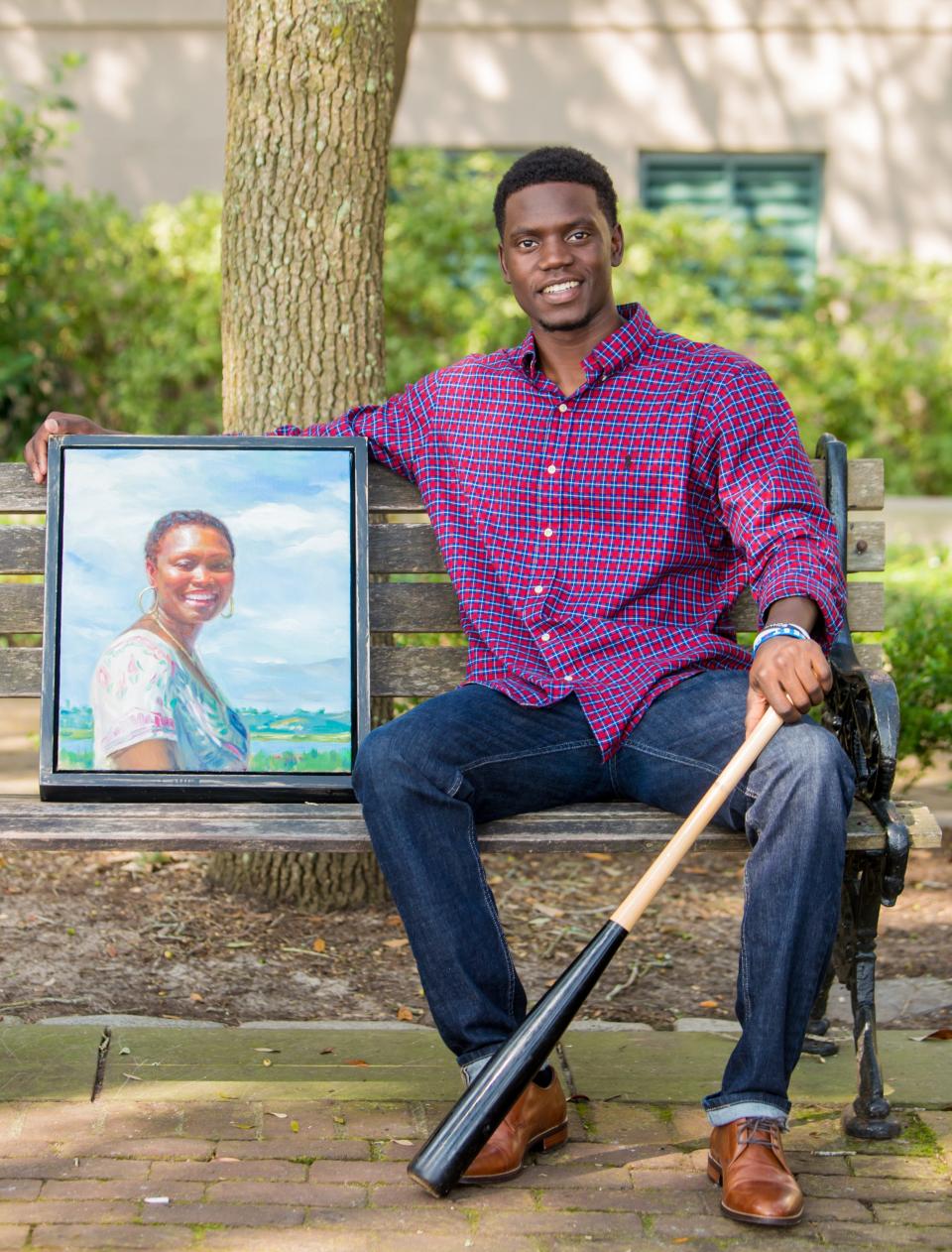Five years after Charleston church massacre: How 'Emanuel' reveals the power of forgiveness

Five years ago today, Dylann Roof walked into Emanuel African Methodist Episcopal Church in South Carolina, opened fire and murdered nine people.
Roof, a self-admitted white supremacist, was found guilty on all 33 counts lodged against him and sentenced to death.
Through this tragedy, many of the people affected by the hate crime were able to forgive Roof. "Emanuel," a documentary released last year on the fourth anniversary of the shooting finds a beacon of light in the tragedy and puts the spotlight on the power of forgiveness. The film was directed by Brian Ivie and produced by Stephen Curry, Viola Davis and Mariska Hargitay.
"I never thought I would be able to forgive somebody for murdering my mom," Chris Singleton tells USA TODAY about choosing to forgive Dylann Roof for gunning down his mother, Sharonda Coleman-Singleton, and eight others at church.
The former minor league baseball player's story of grace isn't a rare narrative.

The film starts off with survivors and victims' families recounting the horrific events that happened on the night of June 17, 2015, when a white supremacist walked into the historically black place of worship, opened fire and took nine black lives.
Only 48 hours after having lost mothers, sisters, sons, husbands and wives, their loved ones appeared in court for Roof's bond hearing, and what transpired was something no one could have anticipated.
It was the first time any of them would come face to face with the perpetrator of the hate crime as the judge presiding over Roof's bond hearing invited them to make a statement should they wish.
First up was Nadine Collier, who lost her mother Ethel Lance.
"I forgive you ... You took something really precious from me. I will never talk to her ever again, I will never be able to hold her again, but I forgive you and have mercy on your soul," Collier says while fighting back tears.
While not everyone was readily able to forgive Roof for his actions, a few family members followed suit and said that they, too, forgave the gunman.
Forgiving Roof at his bond hearing wasn't something planned or premeditated – it just happened.
Singleton was involved in a baseball game when he decided to bestow grace onto Roof and "that was something totally different from being in the courtroom at the time."
He says he wasn't following the news or checking his phone and had no idea that the families had decided to issue statements of forgiveness at the hearing. For him, the fact that they were separate occasions solidifies his choice to forgive.
But Singleton wants people to know that forgiving his mother's murderer wasn't something he did just to do.
"After seeing what happened and the reason why it happened, and after seeing how people could forgive, I truly hope that people will see that it wasn't just us saying words," Singleton says. "I know, for a fact, that it was something greater than us, using us to bring our city together."
The Charleston shooting occurred a little less than a year after Ferguson, Missouri, erupted over Michael Brown's shooting, and it brought South Carolina's deep-rooted history of racism to the forefront.
Singleton notes that Roof set out to start a race war. He finds solace in the fact that the community reacted in a way opposite of what Roof was expecting but that brought them together.
"The narrative of forgiveness is submitting and it means that you're weak, or people would think that. But I've realized that forgiving is so much tougher than holding a grudge," Singleton says. "It takes a lot more courage to forgive than it does to say 'I'm going to be upset about whatever forever.' "
This article originally appeared on USA TODAY: Charleston church attack and the power of forgiveness in 'Emanuel'

